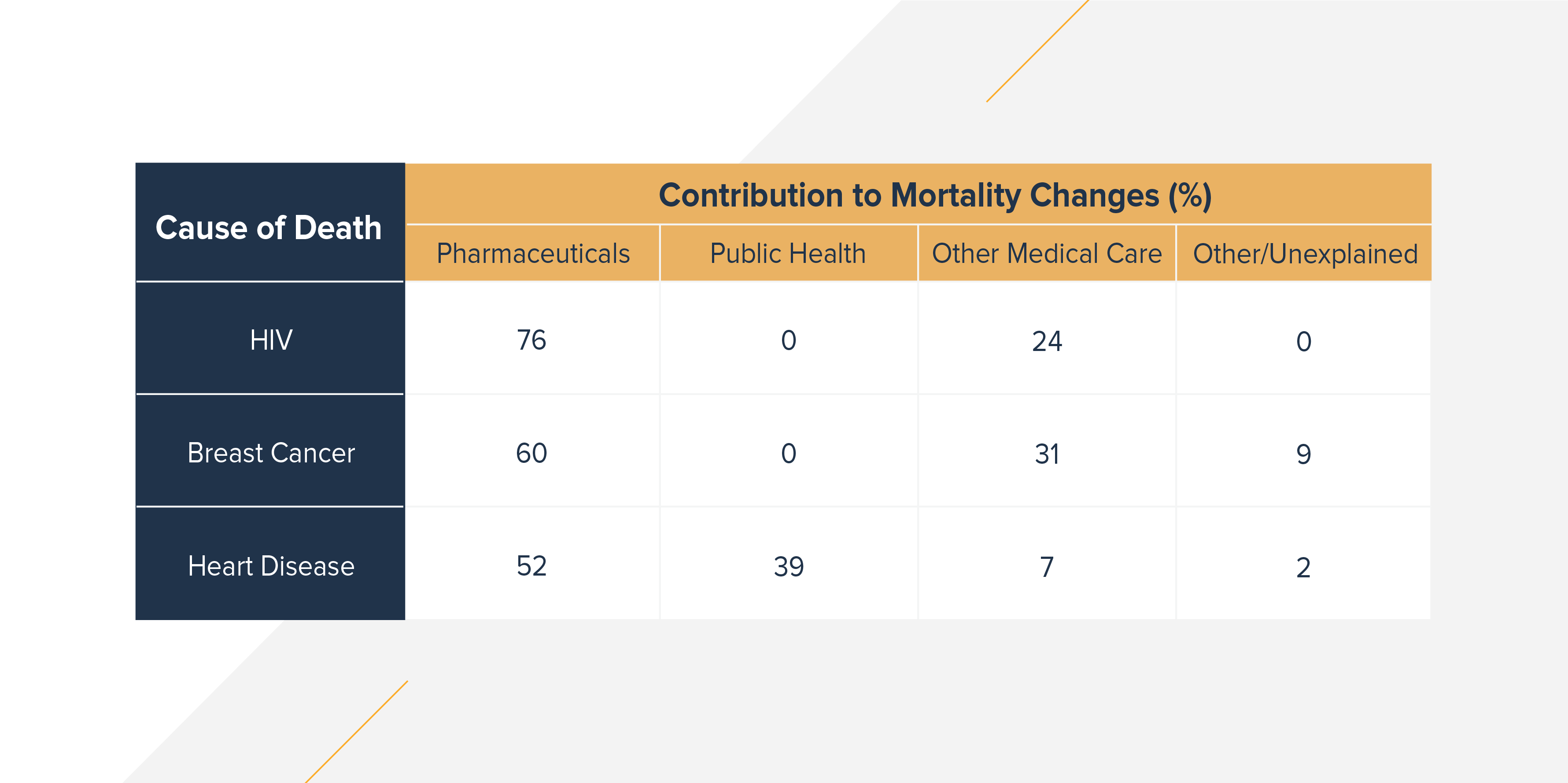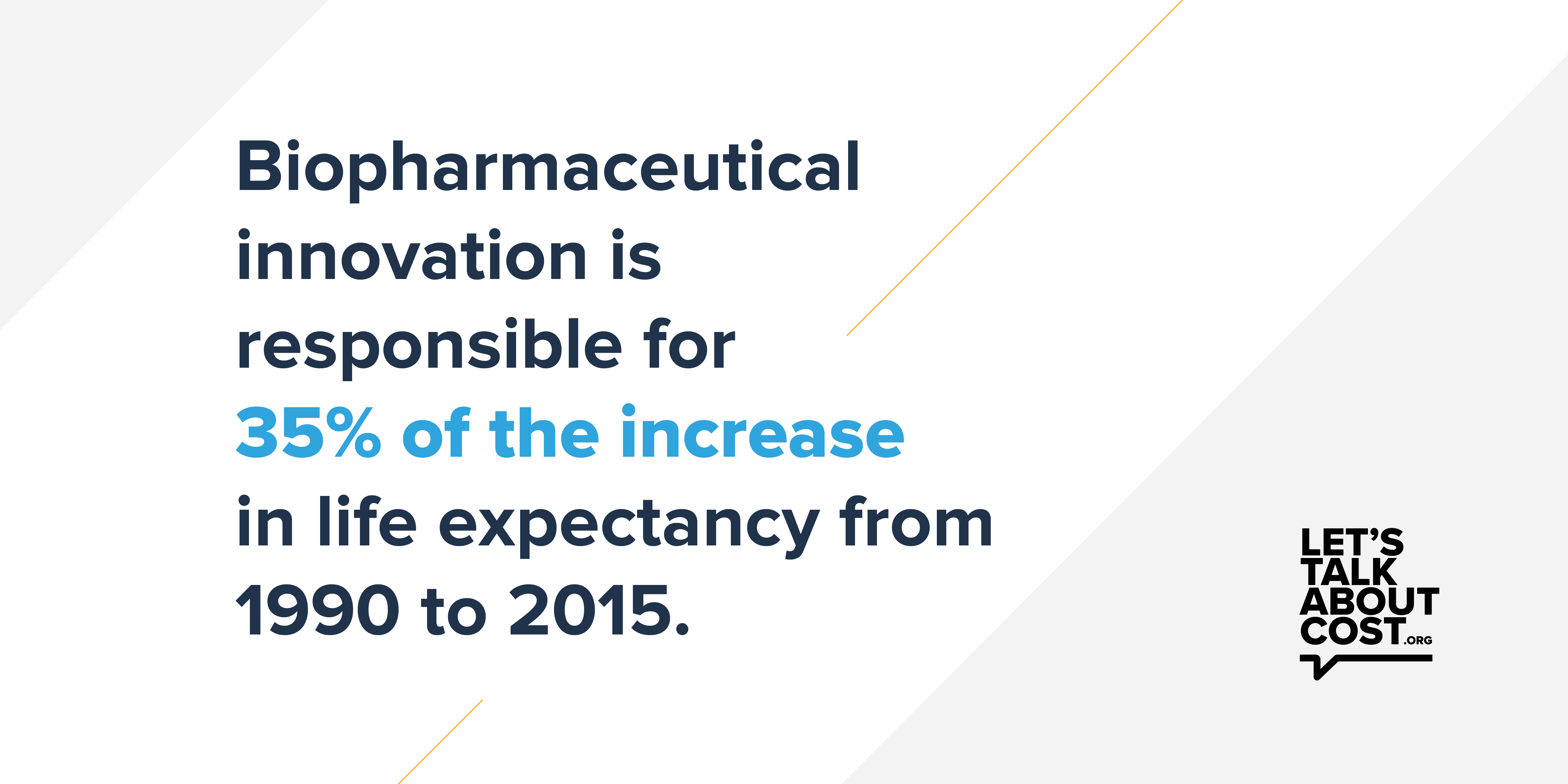Medicines are responsible for more than a third of the improvement in life expectancy from 1990 to 2015, according to a recent study published in Health Affairs. This underscores the crucial role of biopharmaceutical innovation, as life expectancy increased 3.3 years during that time period.
For all causes of death, public health interventions were accountable for 44% of improved life expectancy, while pharmaceuticals were the second-leading cause of gains in life years at 35%. Notably, improvements in treatment thanks to biopharmaceutical innovation accounted for the majority of mortality changes in several disease areas:
- 76% of improvements in mortality for patients with HIV
- 60% of improvements in mortality for patients with breast cancer
- 52% of improvements in mortality for patients with heart disease

Medicines are this country’s best chance at tackling the biggest health care cost driver: chronic disease. Chronic health conditions, such as cancer, diabetes and heart disease, are the leading causes of death and disability in the United States and account for about 90% of health care spending.
Thanks largely to constant biopharmaceutical innovation, many diseases that were once considered incurable are now treatable, lessening the economic burden on the health care system and restoring patients’ quality of life. As evidenced by this report, advances in biopharmaceutical research make an enormous impact to both individuals and the larger community. To improve our health care system, we need policies that support a robust research and development ecosystem so we continue to see improvements in life expectancy thanks to innovation.
Learn more at letstalkaboutcost.org.




